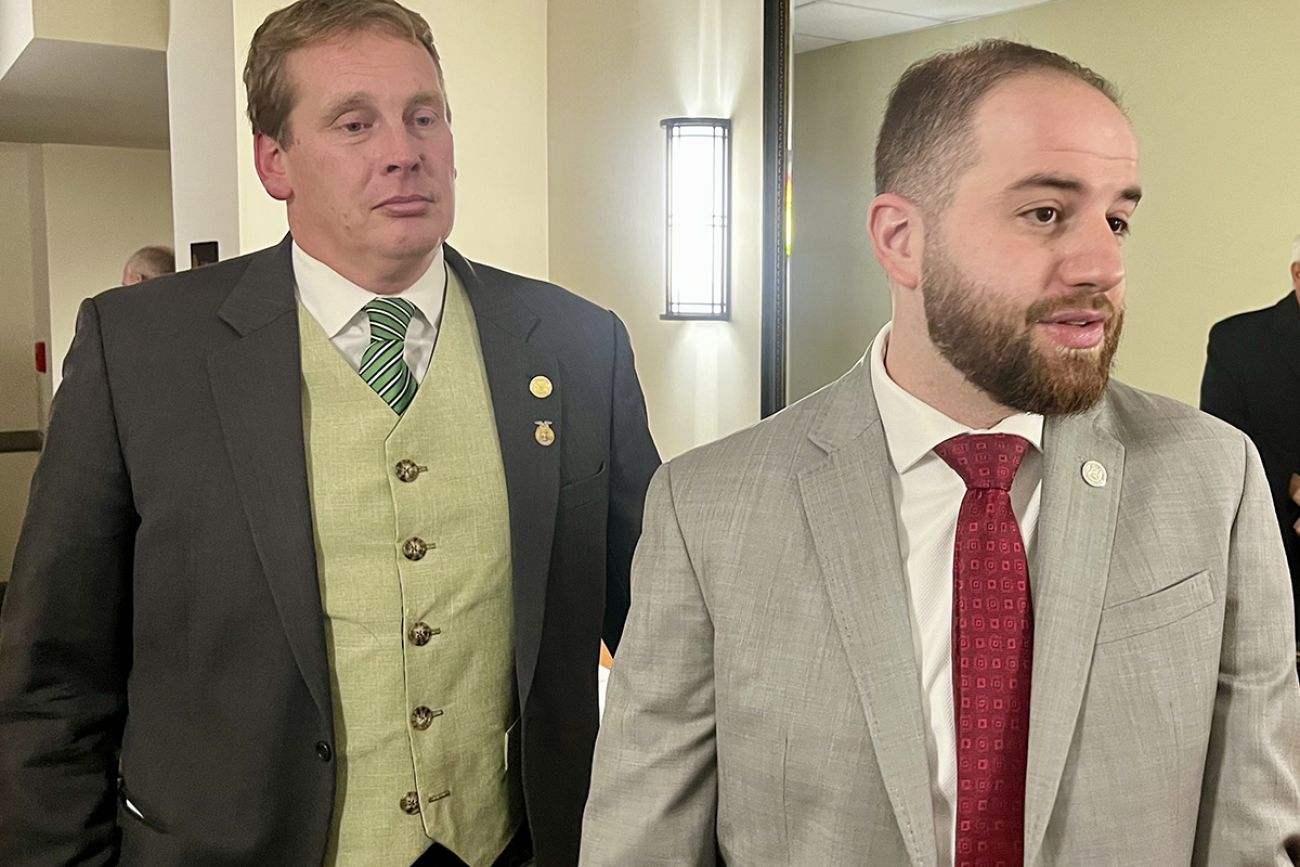Michigan may open up governor, Legislature to more transparency — in 2027

- After months of delays, Michigan House panel advances bills to expand the state’s Freedom of Information Act
- Bills would subject governor’s office and Legislature to public records requests beginning in 2027 — after Gov. Whitmer’s term ends
- Proposal still awaits vote in full House, where Speaker Joe Tate has not disclosed whether he plans to take them up by year’s end
LANSING — Michigan is one step closer to opening up the governor's office and Legislature to public records requests after a state House panel on Wednesday advanced legislation.
While the proposal could help shine new light on the inner workings of Michigan government, it would not do so until 2027 — when current Gov. Gretchen Whitmer and several current lawmakers will no longer be serving.
That timing is simply a coincidence, said sponsoring Sen. Jeremy Moss, D-Southfield, who argued the proposal would be a big step for a state that has earned failing grades for transparency.
As written, the legislation would take effect beginning Jan. 1 “of the first odd-numbered year that begins at least six months after the date it is enacted into law.” Because of how late in the year the House is taking up the legislation, that kicks a possible enactment date to Jan. 1, 2027.
The legislation passed the Senate in June and has been awaiting action in the House, where outgoing Democratic Speaker Joe Tate of Detroit has not yet publicly committed to holding a floor vote in the final weeks of the lame-duck session.
Related:
- Government transparency plan passes Michigan Senate — which had been roadblock
- Michigan Republicans to push constitutional amendment requiring ID to vote
- Michigan judge drops felonies for poll workers in double-voting case
House Democratic Caucus spokesperson Jess Travers did not directly say whether the full House would vote on the bills Wednesday, only noting the bills are “not on the agenda today.”
Even if approved by the House, the package would still need final approval from the Senate before heading to Whitmer’s desk for potential signature.
That’s due to minor changes the House Government Operations Committee approved Wednesday, including clarifications about information that is already exempt from public records requests by existing regulation.
With the help of Republican Sen. Ed McBroom of Waucedah Township, Moss has pushed for nearly a decade to make Michigan’s state government more transparent to public records requests.
Currently, Michigan and Massachusetts are the only states to fully exempt their governor’s office and lawmakers from FOIA laws.The state is also considered one of the worst in the country for government transparency. A 2020 report from the Coalition for Integrity ranked Michigan as the 48th worst state in the country for anti-corruption measures.
But that could soon change under the legislation, which would allow citizens to request emails and other records from the governor and lawmakers, which they can already do with local and other state government officials.
“Honestly, if we can expose how many times certain people visit the White House and sleep in the Lincoln bedroom, I don’t really see why I can’t also tell people how many times AT&T or a university or a certain constituent has come to my office,” McBroom said.
“I don’t think that should be a problem for any of us to be able to show that.”
As a candidate in 2018, Whitmer pledged to voluntarily open her office to public records requests if the Legislature did not require it. She has not done so and last year backed off that pledge, saying she did not want to act unilaterally but would sign legislation that treated lawmakers equally.
As part of Moss and McBroom’s bills, legislative offices would not have to disclose communications between a lawmaker and their constituents, internal investigation records, caucus counsel records, personal cell phone numbers and records related to ongoing civil actions until those matters are settled.
While communications between a registered lobbyist and lawmaker would be made available to the public, communications between a lawmaker and a constituent that’s part of a special interest or business group would be shielded.
Additional exemptions also guarantee protections for internal communications between the governor and most Michigan residents, unless they are lobbyists.
Those proposed exemptions have drawn criticism from transparency advocates, such as the Michigan Press Association, who previously called the bills a good first step that doesn't go far enough.
Still, no one openly opposed the bills on Wednesday, Aside from lawmakers, the only person to speak on the measures in the committee hearing was an official from the American Civil Liberties Union of Michigan.
“The package carries a central, strong message that we should not continue to shield public officials from basic anti-corruption and anti-secrecy laws,” said Merissa Kovach, the ACLU of Michigan’s legislative director.
She called the package a “critical first step … in securing government transparency.”
Wednesday’s hearing marks the first time since late June that lawmakers have taken up the government transparency proposal.
It is also the closest Michigan has ever come to opening up its legislative branch to Freedom of Information Act requests, a potential milestone Moss and McBroom both noted.
“As a Jew, I’ve never had the experience of, as a kid, waking up on Christmas morning,” Moss said. “I’ve got to assume it feels something like this.”
See what new members are saying about why they donated to Bridge Michigan:
- “In order for this information to be accurate and unbiased it must be underwritten by its readers, not by special interests.” - Larry S.
- “Not many other media sources report on the topics Bridge does.” - Susan B.
- “Your journalism is outstanding and rare these days.” - Mark S.
If you want to ensure the future of nonpartisan, nonprofit Michigan journalism, please become a member today. You, too, will be asked why you donated and maybe we'll feature your quote next time!




